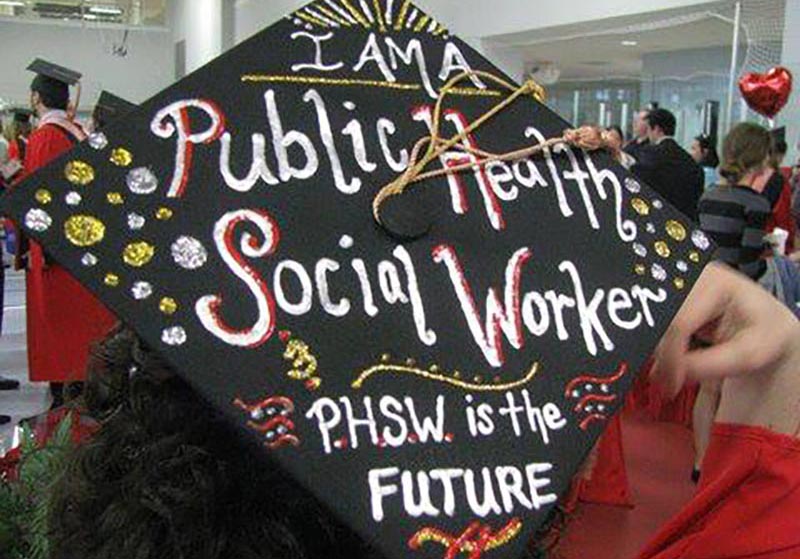Wednesday, July 10, 2019

The Center for Innovation in Social Work & Health (CISWH) at Boston University’s School of Social Work has released several new resources to help advance the field of public health social work (PHSW).
PHSW is more than a specialty area within the social work profession. It is a framework and set of approaches relevant to all aspects of social work education and practice. PHSW engages and connects the “upstream”—prevention, health promotion, and population health—to the field of social work, further enabling our impact on health systems and equity. We have produced the following resources to help social work advance its health impact:
Recommendations for the Field
Six recommendations focused on leadership development, framing PHSW, communications and marketing, professional organizations, and education and research. Download the recommendations.
Toolkit
This toolkit contains an overview of PHSW history, definitions, and examples of contemporary practice. It also includes a model PHSW syllabus, and a resource guide that links educators and practitioners to additional curriculum-building materials. Download the toolkit.
PowerPoint Presentations
The toolkit also includes a collection of slide decks by practitioners and scholars on PHSW-related issues. For use in social work or public health courses, or in continuing education settings.
• Start with Public Health Social Work 101.
• View more topics.
MSW/MPH Program Handbook
Released in March 2019, this first of its kind handbook provides practical information on how to build and strengthen these valuable dual-degree programs. Download the handbook.
Authored by Betty J. Ruth, MSW, MPH; Madi Wachman, MSW, MPH; Alexis Marbach, MPH; Jamie Wyatt Marshall, MSW, MPH; Nandini S. Choudhury, MSW, MPH, Esther Velásquez, ScD, MSW, MPH; Sandy (Cohen) Colts, MSW, MPH; Valerie Tobia, LICSW, MPH; Tamara J. Cadet, PhD., LICSW, MPH; Deborah Milbauer, MPH, MSW; Elana Premack Sandler, LCSW, MPH. These publications are part of the Boston University Advancing Leadership in Public Health Social Work Education project, (BU-ALPS), which was funded by the Health Resources and Services Administration (HRSA) of the U.S. Department of Health and Human Services in 2017-2018.
This project is supported by the Health Resources and Services Administration (HRSA) of the U.S. Department of Health and Human Services (HHS) under grant number G05HP31425, Leadership in Public Health Social Work Education Grant Program, in the amount of $300,000 awarded to Trustees of Boston University. No percentage of this project was financed with nongovernmental sources. This information or content and conclusions are those of the author and should not be construed as the official position or policy of, nor should any endorsements be inferred by HRSA, HHS or the U.S. Government.